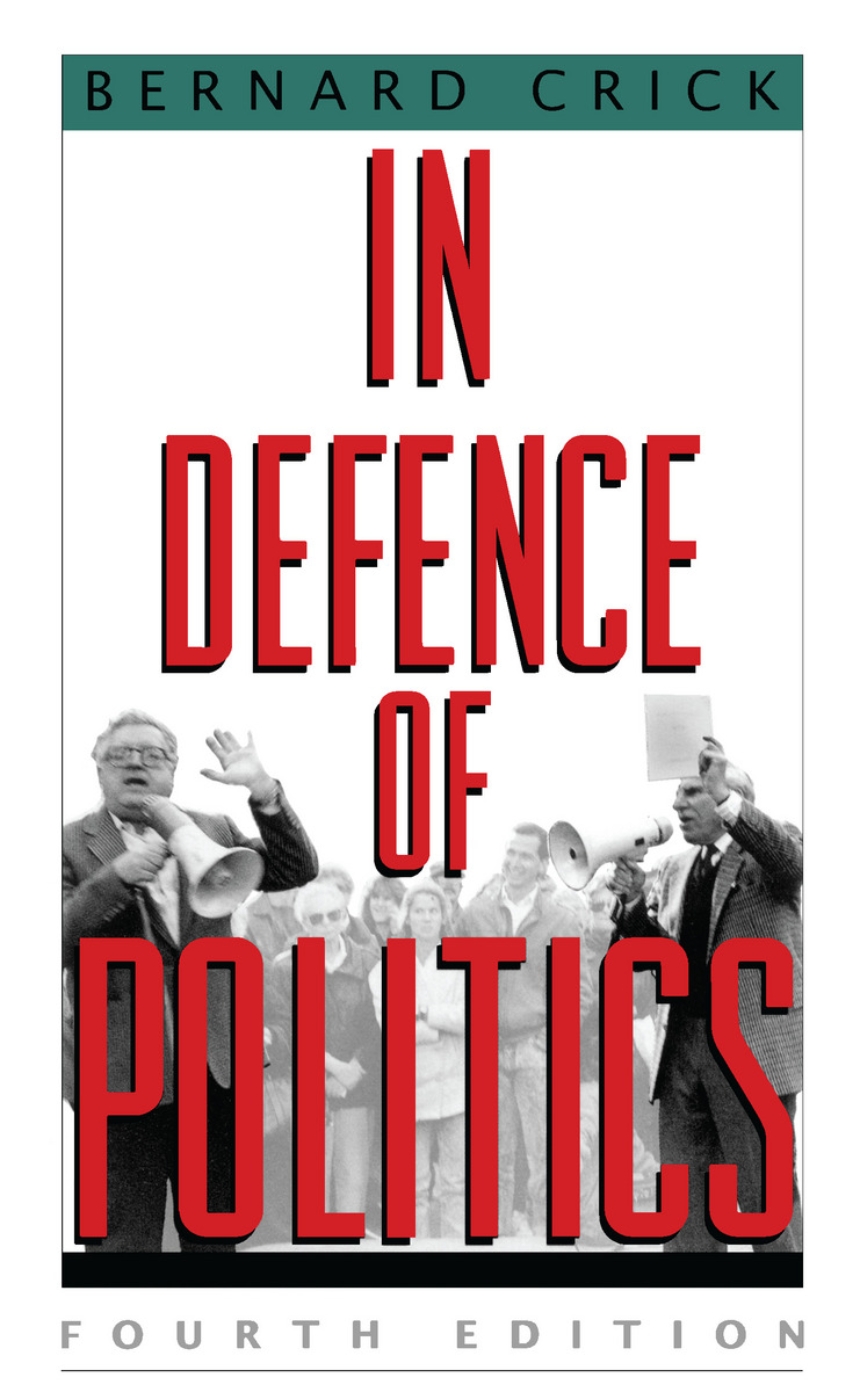In Defense of Politics
An ever-timely explanation of the work of politics that argues powerfully that political activity is at its heart a kind of moral activity.
It's hard to get excited about politics these days. Polarization is high, getting things done seems all but impossible, and at times it seems like no one is willing to listen to anyone they disagree with. Surely there's a better way.
In Defense of Politics says, loud and proud: Absolutely not. In this classic but still timely work, which recently drew strong praise from Ezra Klein, Bernard Crick argues that politics, with its compromises and frustrations aand power struggles, remains the only tested alternative to government by coercion, making both freedom and order possible in heterogeneous societies. For Crick, politics is messy and complex, and his book defends it against those who would identify it with (and reduce it to) ideology, democracy, nationalism, or technology. “Politics," Crick explains, "involves genuine relationships with people who are genuinely other people, not tasks set for our redemption or objects for our philanthropy.”
Clear-eyed and frank yet still capable of inspiring, In Defense of Politics is a rousing call to recommit to the hard work of bringing people together and moving society forward.
It's hard to get excited about politics these days. Polarization is high, getting things done seems all but impossible, and at times it seems like no one is willing to listen to anyone they disagree with. Surely there's a better way.
In Defense of Politics says, loud and proud: Absolutely not. In this classic but still timely work, which recently drew strong praise from Ezra Klein, Bernard Crick argues that politics, with its compromises and frustrations aand power struggles, remains the only tested alternative to government by coercion, making both freedom and order possible in heterogeneous societies. For Crick, politics is messy and complex, and his book defends it against those who would identify it with (and reduce it to) ideology, democracy, nationalism, or technology. “Politics," Crick explains, "involves genuine relationships with people who are genuinely other people, not tasks set for our redemption or objects for our philanthropy.”
Clear-eyed and frank yet still capable of inspiring, In Defense of Politics is a rousing call to recommit to the hard work of bringing people together and moving society forward.
Reviews
Table of Contents
Preface to the Fourth American Edition
Acknowledgments
1. The Nature of Political Rule
2. A Defence of Politics Against Ideology
3. A Defence of Politics Against Democracy
4. A Defence of Politics Against Nationalism
5. A Defence of Politics Against Technology
6. A Defence of Politics Against False Friends
The non-political conservative
The a-political liberal
The anti-political socialist
7. In Praise of Politics
Three Footnotes:
A Footnote to Rally the Academic Professors of Politics
A Footnote to Rally Fellow Socialists
A Final Footnote to Rally Those Who Grudge the Price
Acknowledgments
1. The Nature of Political Rule
2. A Defence of Politics Against Ideology
3. A Defence of Politics Against Democracy
4. A Defence of Politics Against Nationalism
5. A Defence of Politics Against Technology
6. A Defence of Politics Against False Friends
The non-political conservative
The a-political liberal
The anti-political socialist
7. In Praise of Politics
Three Footnotes:
A Footnote to Rally the Academic Professors of Politics
A Footnote to Rally Fellow Socialists
A Final Footnote to Rally Those Who Grudge the Price
